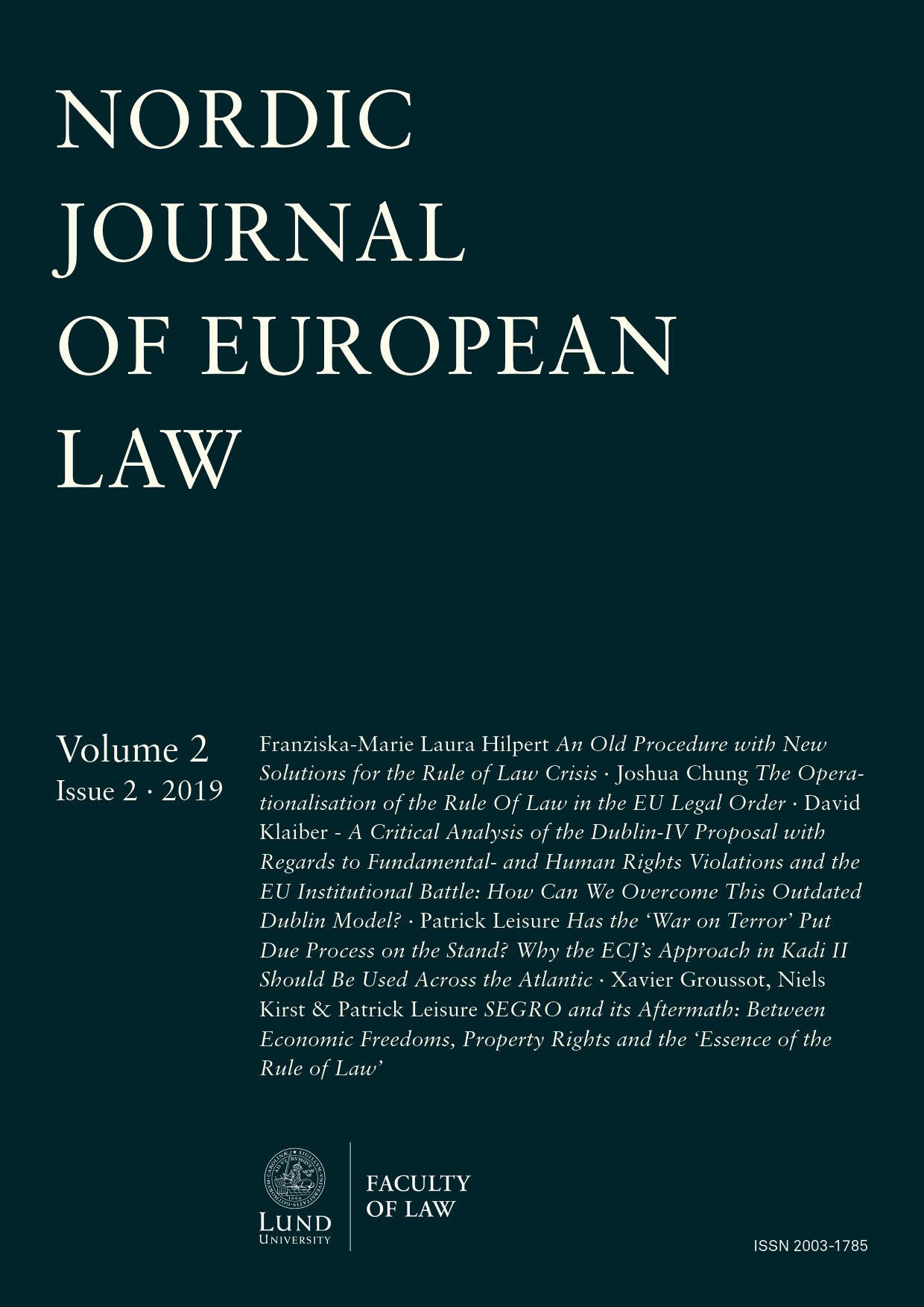SEGRO and its Aftermath Between Economic Freedoms, Property Rights and the 'Essence of the Rule of Law'
Main Article Content
Abstract
The Court ofJustice ofthe European Union’s (CJEU, Court) SEGRO judgment is more than just a recent addition to the debate on the so-called rule of law crisis in the European Union. As this case note shows, SEGRO touches on the most fundamental aspects of the European Union and its relation to the Member States. From an economic perspective, the Court in SEGRO’s treatment ofproperty rights and the ability ofeconomic actors to rely on their lawfully concluded contracts forms the undercurrent of economic investment in the Union. From a functional perspective, the case is perhaps indicative of a wider change in the role of the Court with respect to national courts’ margin of discretion. From a normative perspective, SEGRO gives rise to an important discussion on the difference between fundamental rights and economic freedoms in the EU since the entering into force of the Lisbon Treaty in 2009, as well as ‘constitutional homogeneity’ in the EU after Hungary’s legislative reforms. Finally, from an evolutionary perspective, SEGRO marks another iteration in perhaps a wider shift in the trajectory of the Court with respect to questions that menace the integrity of the functioning of the European Union. This case note first examines the background (I) and facts of the case (II). Then it analyses the Opinion of the Advocate General (III) and the findings of the Court (IV). It concludes with a discussion based not only on an analysis of the SEGRO case (V), but also going beyond the case by analysing the most recent jurisprudential developments concerning Hungary and the issue of the (non-respect) of the Rule of Law in the European Union(VI).
Article Details

This work is licensed under a Creative Commons Attribution-NonCommercial-NoDerivatives 4.0 International License.

